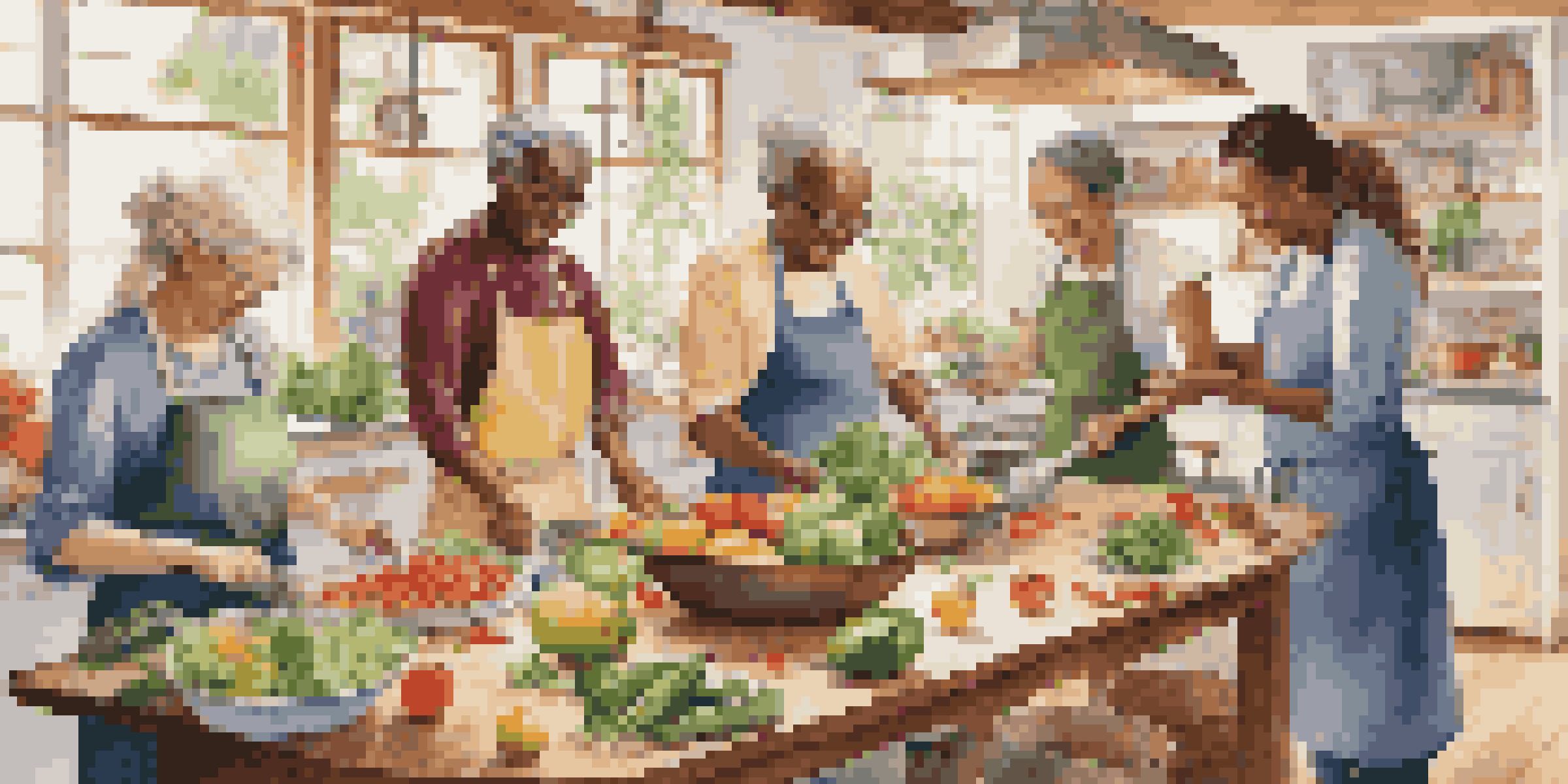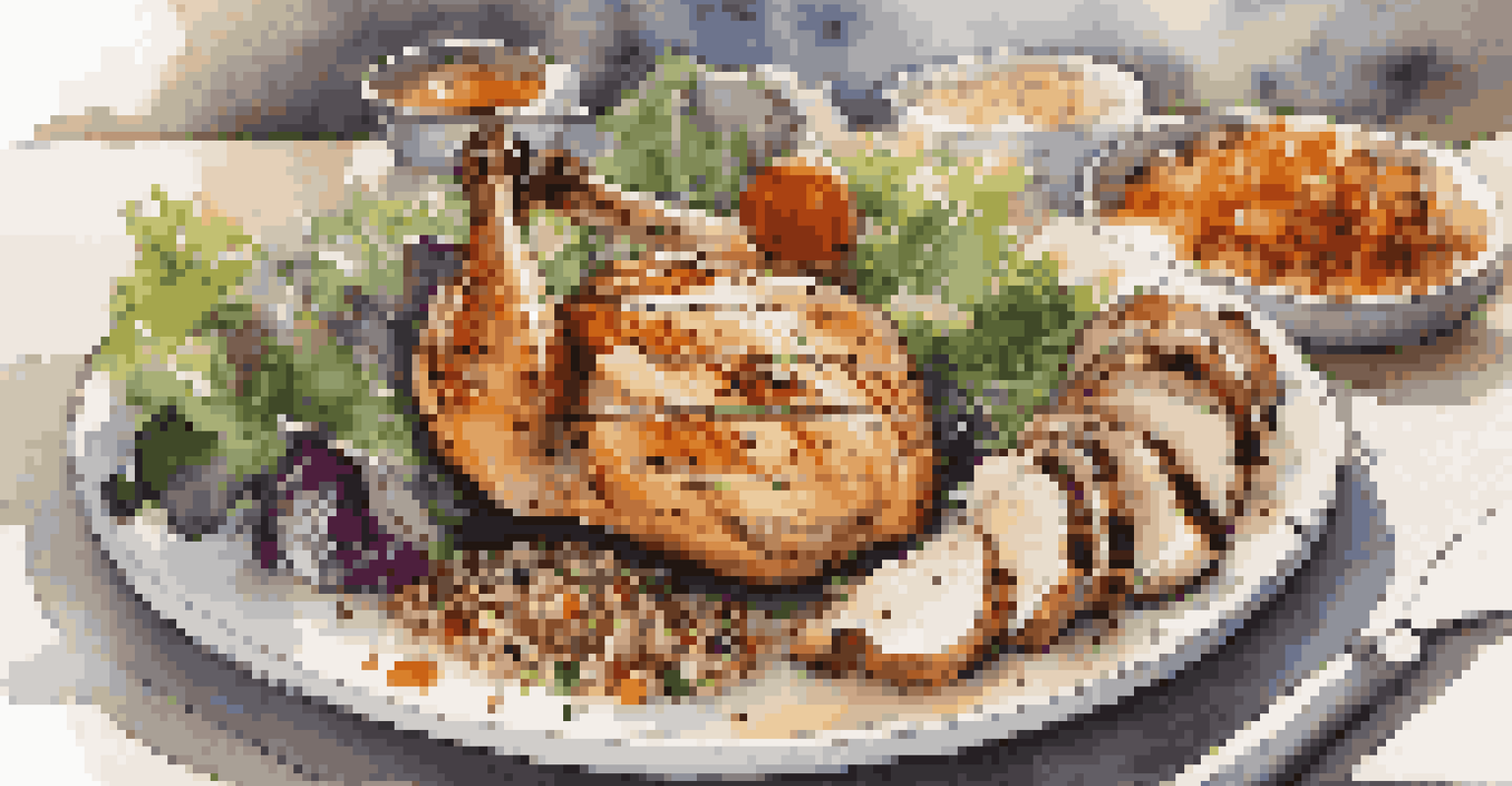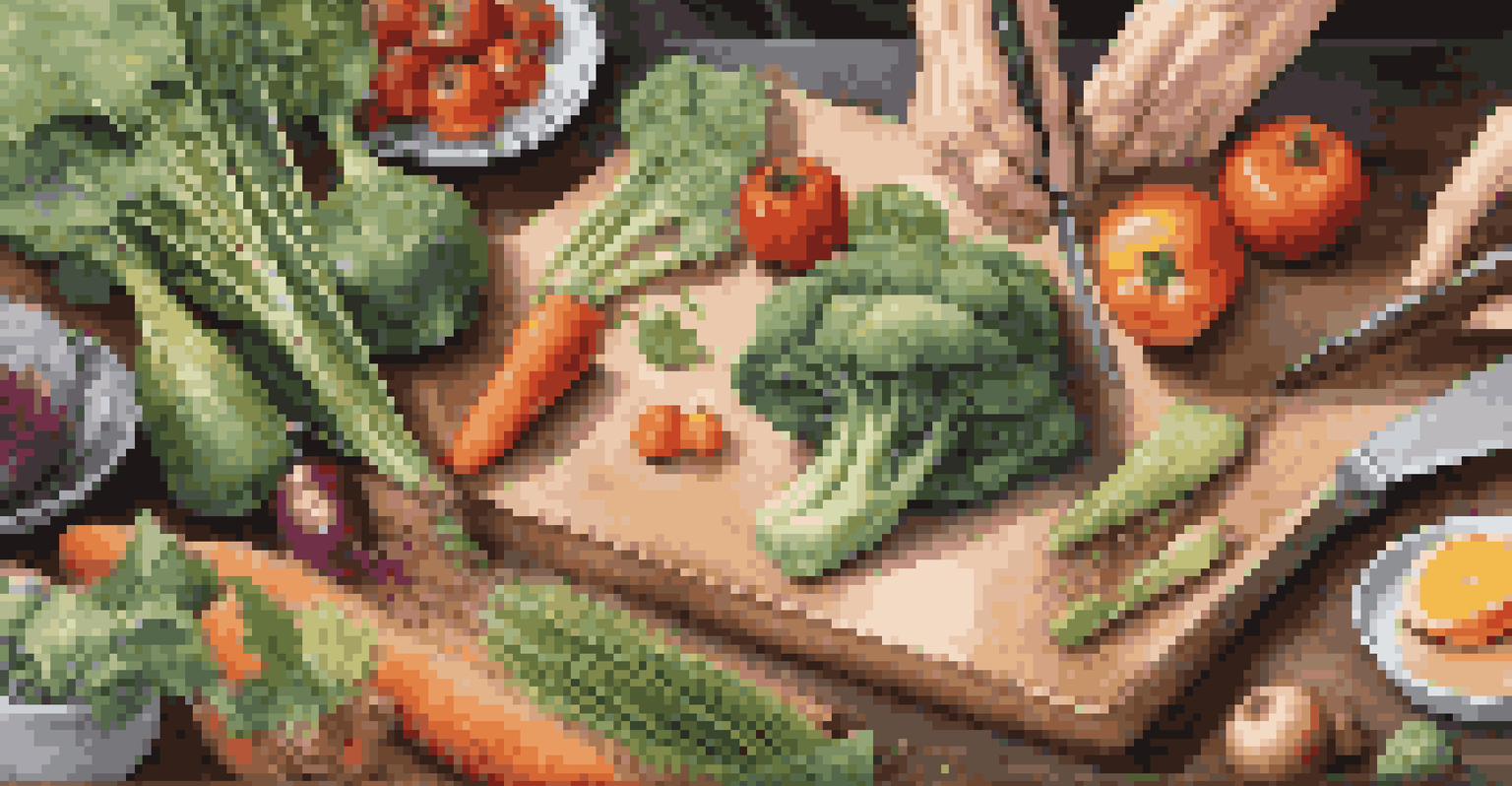Healthy Cooking Workshops: Skills for Lifelong Nutrition

The Importance of Healthy Cooking Skills
In today’s fast-paced world, many people rely on takeout and processed foods, which can lead to poor nutritional habits. Learning healthy cooking skills can empower individuals to make better food choices. By understanding how to prepare nutritious meals, participants can improve their overall health and well-being.
Cooking is like love. It should be entered into with abandon or not at all.
Healthy cooking is more than just following a recipe; it’s about understanding ingredients and their nutritional value. Familiarity with whole foods, such as fruits, vegetables, and whole grains, encourages healthier eating habits. This foundational knowledge often translates into lifelong dietary changes that can prevent chronic diseases.
Moreover, cooking at home allows for greater control over what goes into meals. Participants in cooking workshops often learn to read labels, manage portion sizes, and substitute unhealthy ingredients with healthier options. These skills not only enhance cooking abilities but also instill a sense of confidence in meal preparation.
Benefits of Attending Cooking Workshops
Cooking workshops provide a unique opportunity to learn in a hands-on environment. Participants can practice new techniques under the guidance of experienced instructors, fostering both skill development and creativity. This interactive approach makes learning enjoyable and memorable, encouraging the application of skills beyond the classroom.

Additionally, workshops often focus on specific dietary needs, such as vegetarian, gluten-free, or heart-healthy cooking. This tailored approach helps individuals understand how to adapt their cooking to fit their lifestyle and health goals. The diversity of topics ensures that everyone can find something relevant to their personal journey.
Attendees also have the chance to connect with like-minded individuals who share similar health interests. This social aspect of cooking workshops can enhance motivation and accountability, as participants often support each other in adopting healthier habits. Building a community around healthy cooking can make the journey more fun and sustainable.
What to Expect in a Healthy Cooking Workshop
Typically, a healthy cooking workshop begins with an overview of nutrition basics. Participants learn about the importance of balanced meals and the roles different food groups play in a diet. This foundational knowledge sets the stage for more advanced cooking techniques and recipes later in the session.
The best way to take care of your health is to eat what you love and love what you eat.
Hands-on cooking sessions allow participants to practice what they've learned. Whether it’s chopping vegetables, sautéing, or baking, these practical experiences help reinforce skills. Instructors often provide tips and tricks to streamline the cooking process, making it easier to replicate dishes at home.
Lastly, workshops usually conclude with a tasting session where participants can enjoy the fruits of their labor. This not only showcases the delicious outcomes of healthy cooking but also builds confidence in their ability to prepare similar meals independently. Sharing meals together fosters a sense of community and accomplishment.
Incorporating Seasonal Ingredients
One key aspect of healthy cooking is understanding the benefits of using seasonal ingredients. Seasonal produce not only tastes better but is also often more nutritious and affordable. Cooking with what’s in season encourages creativity and variety in meal planning, making healthy eating more enjoyable.
Workshops often emphasize the importance of local and organic ingredients. Learning about where food comes from can enhance appreciation for fresh produce and encourage sustainable practices. This connection to food sources fosters a deeper understanding of nutrition and health.
Using seasonal ingredients also allows participants to explore new flavors and cooking techniques. By experimenting with different fruits and vegetables, individuals can discover new favorite recipes and cooking styles. This exploration can lead to a lifelong passion for cooking and healthy eating.
Meal Prep: A Game Changer for Busy Lives
One of the most valuable skills taught in cooking workshops is meal prep. Learning how to plan and prepare meals in advance can be a game changer for those with busy schedules. By dedicating a few hours each week to cooking, participants can ensure they always have healthy options on hand.
Meal prep helps individuals avoid the temptation of unhealthy takeout or convenience foods. By having nutritious meals ready to go, it becomes easier to stick to dietary goals. This proactive approach not only saves time but also reduces food waste, as participants can use ingredients efficiently.
Workshops often include strategies for effective meal planning, such as creating shopping lists and batch cooking. These techniques can simplify the cooking process and make healthy eating more accessible. Participants leave with practical skills that can seamlessly fit into their daily routines.
Building a Balanced Plate
A crucial lesson in healthy cooking workshops is how to build a balanced plate. Understanding the proportions of proteins, carbohydrates, and fats is essential for creating nutritious meals. This knowledge helps participants design meals that are satisfying and supportive of their health goals.
Workshops often provide visual aids and examples of balanced plates, making the concept easy to grasp. Participants learn how to incorporate a variety of colors and textures into their meals, enhancing both nutrition and enjoyment. This focus on balance encourages mindful eating practices.
By mastering the art of building a balanced plate, individuals can tailor meals to their specific dietary needs and preferences. This flexibility promotes long-term adherence to healthy eating habits. The skills learned in workshops can serve as a guide for everyday meal creation, empowering participants to make informed choices.
Sustaining Healthy Habits Beyond the Workshop
The ultimate goal of healthy cooking workshops is to equip participants with skills that last a lifetime. However, the real challenge is sustaining these habits after the workshop ends. To achieve this, many programs provide resources, such as recipe books and online support groups, to help maintain motivation.
Establishing a routine is crucial for integrating healthy cooking into daily life. Participants are encouraged to set realistic goals and gradually incorporate what they've learned into their meal planning and preparation. Small, consistent changes often lead to lasting habits.

Additionally, ongoing education is vital. Many workshops offer follow-up classes or advanced sessions to further enhance cooking skills. By continuing to learn and grow, individuals can keep their passion for healthy cooking alive and inspire others to join them on their journey toward better nutrition.